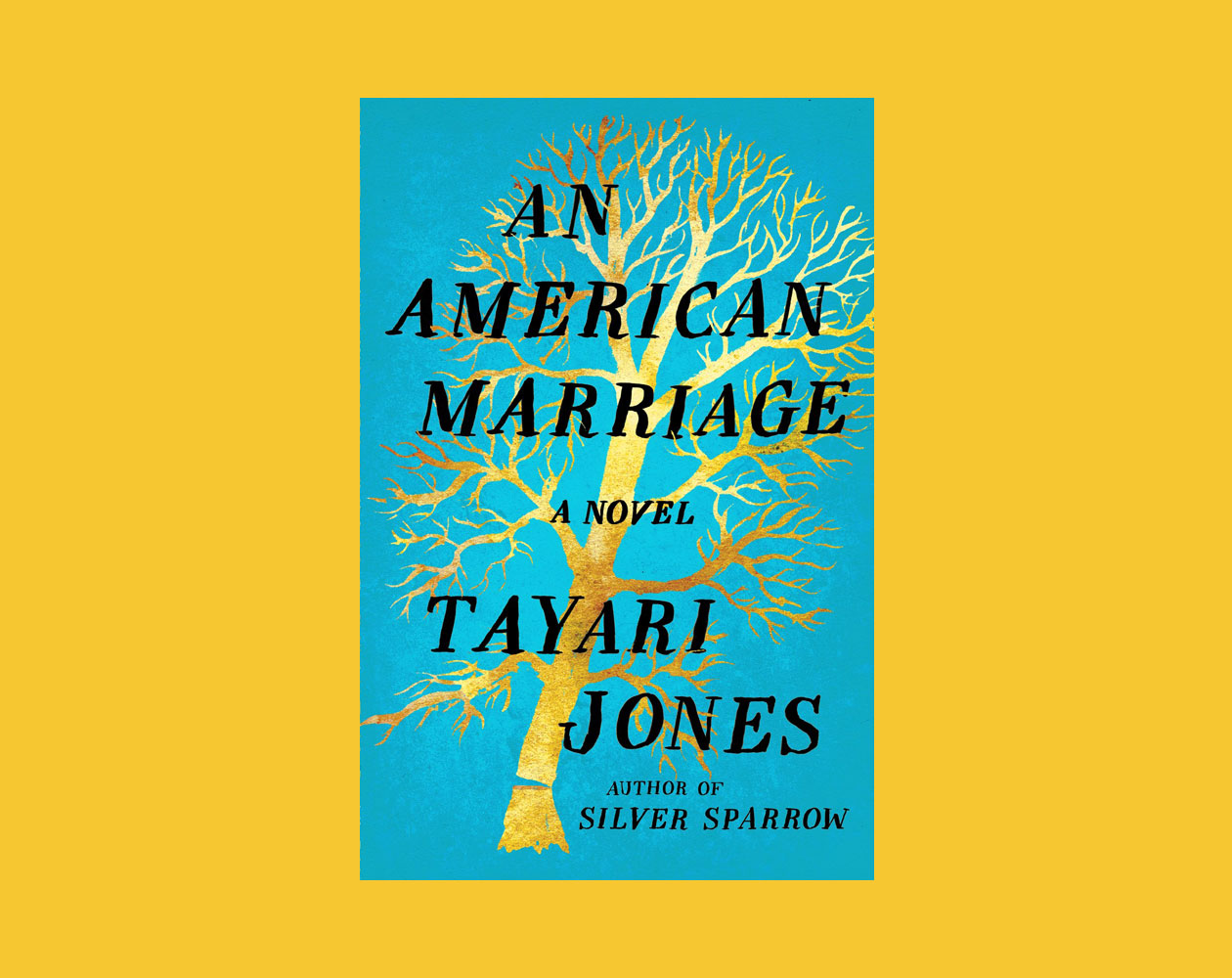The 2018 Rooster Summer Reading Challenge: Week Four
We finished our second book of the summer, An American Marriage by Tayari Jones, which means it's time for novelist Laura van den Berg to choose our first victor.

Welcome to the 2018 Rooster Summer Reading Challenge. We’ve selected six Rooster-worthy works of fiction from 2018 to read through August—two per month—and once a week we meet here to discuss our reading progress.
Each month we’re joined by a new judge, who discusses the books with us and then selects which of that month's two books heads to our summer finale—where you, the readers, decide which novel wins the 2018 Rooster Summer Reading Challenge and an automatic berth in the 2019 Tournament of Books.
(Which kinda counts for a lot, seeing how our 2017 summer winner, Fever Dream, stampeded through the 2018 ToB, eventually taking home the Rooster. By the way, if all of this is new to you, check out this Rooster primer.)
To select our summer books, each of our judges chose a work of fiction they were particularly excited about this year. The other three books were selected by the ToB Committee according to our normal criteria—novels first published in English in the calendar year that we feel are excellent and interesting. (To avoid conflicts, none of the judges were assigned the books they selected personally.)
A special thanks to our Sustaining Members for making another year of the Rooster Summer Reading Challenge possible. Find out why The Morning News and the Tournament of Books depend on your support, and please consider becoming a Sustaining Member or making a one-time donation.
This month we’re reading Tomb Song by Julián Herbert and An American Marriage by Tayari Jones, with novelist Laura van den Berg.
- See the reading list and discussion schedule
- Catch up on previous chats: Tomb Song (first half, second half), American Marriage (first half)
- Jump into today’s discussion in the comments
Please note: We receive a cut from purchases made through the book links in this article.
Rosecrans Baldwin: And it all comes down to this. We finished the novel, in which unjustly-incarcerated Roy returns home to unhappily-married, freshly-sorta-betrothed Celestial, not to mention hanger-around-er Andre, so it’s time to talk about their happy/unhappy reunion. Plus the fact that today, Laura, you get to choose which of these two very different books gets a seat in the big summer Rooster finale come August.
Let me start on an emotional note: Did you heart also plunge on that line, “If I can’t cry, nobody cries.”
Laura van den Berg: Yes, yes, yes. The collision between Roy, Celestial, and Andre is shattering. There is no clean break or resolution, as expected.
Rosecrans: No, and I was glad for that. Jeez, there are so many ways we could talk about the second half of this book. So many ups! Many downs! I’ll start with the night Roy goes back to Celestial. Here’s one moment I struggled with. Evening in question, I don’t know about you but I was glad to have the story told from Celestial’s perspective. Especially when Roy wants to sleep with her and she doesn’t want to, and she uses a request for a condom to discourage him. As Celestial explains:
In the private library of my spirit, there is a dictionary of words that aren’t. On those pages is a mysterious character that conveys what it is to have no volition even when you do. On the same page it is explained how once or twice in your life you will find yourself bared, underneath the weight of a man, but a most ordinary word will save you.
Now that’s formidable—discovering power when you feel you’re powerless, and to have that power come from a simple source. But may I ask, and I’m not joking around anymore, did that ring true for you? Because it’s not in my personal experience, and as a straight dude, all stereotypes intended, it’s theoretically even further distant. So for me, though the scene was moving plus thematically logical—because I’ve come to know what a rubber means for both Celestial and Roy on a bunch of levels—still this moment felt a little overcooked. Or, and believe me I’m sure I’m not putting this very well or intelligently, and I also sense as I type this I’m in the wrong here but fuck it: What I mean is that I grasp the idea logically, flat-out, of this “ordinary word” saving her, but I don’t see it growing from the soil of the scene presented; it felt contrived.
Laura van den Berg is the author of the novel Find Me and two story collections, What the World Will Look Like When All the Water Leaves Us and The Isle of Youth. Her next novel, The Third Hotel, will be published by FSG in August. Laura lives in Cambridge, Mass., with her husband and dog.
Rosecrans Baldwin is a founding editor of The Morning News. He is the author of You Lost Me There and Paris, I Love You but You’re Bringing Me Down. His latest novel, The Last Kid Left (NPR’s Best Books of the Year) is now out in paperback.
Laura: Interesting! I had a totally different read on that moment. In that same scene, Celestial’s lines—“A woman doesn’t always have a choice, not in a meaningful way. Sometimes there is a debt that must be paid, a comfort that she is obliged to provide, a safe passage that must be secured. Every one of us has lain down for a reason that was not love”—were such a gut-punch for me, another really powerful moment of connection. And then her realizing she has one more “out” to try, a way to refuse without saying the words no, don’t, stop. I was with that moment completely.
Rosecrans: One of my favorite scenes in the book is on page 298 when Roy’s recounting how his mom visited him in prison and begged him to tell her he didn’t rape the woman who sent him to jail. And Roy won’t do it. He says, “I was with Celestial the whole time. You can ask her.” He says “Mama, I am not a rapist,” then “I don’t want to talk anymore.” And when she leaves she says, “I believe you,” and the reader does, too (at least this reader). But he doesn’t give her the exact words she wants, I didn’t rape that woman. It was a great moment for me, as a reader, to see myself wanting exactly what his mother wants, those firm words of denial—because the fact he doesn’t say them exactly in the way she desires makes me suspicious, when all along a part of me (the part that watches too much television) has been wondering if Jones is going to pull the rug out from under us and suggest he was guilty, when all I want is to believe he’s innocent. But it took me an extra moment of thinking to figure out—to recognize where Roy’s sitting, facing his mother’s doubts, with all of his anger and pain and emptiness, so much of his humanity lost—that he needed to say it his way and probably could barely manage to do that.
The question is, were there moments in the book for you that really stood out as times that made you question yourself as a reader?
Laura: On page 265, when Roy is going through his possessions at Celestial’s house, he comes across a letter from her mother in which she questions his wish to marry Celestial, writing: “Is she the wife for the real person that you are?”
Rosecrans: Yes. Not the kind of thing mothers should put in writing.

Roy is a young executive, and Celestial is an artist on the brink of an exciting career. As the newlyweds settle into the routine of their life together, Roy is arrested and sentenced to 12 years for a crime Celestial knows he didn’t commit, and Celestial finds herself bereft and unmoored, taking comfort in Andre, her childhood friend, and best man at their wedding. After five years, Roy’s conviction is suddenly overturned, and he returns to Atlanta ready to resume their life together. (Amazon / IndieBound / Powell’s)
Book description excerpted from publisher’s summary and edited for length.
Laura: Roy’s wrongful incarceration made it all but impossible for their young marriage to survive; at the same time, Olive’s words got me wondering about an alternate path, about what, if the world had not devastated their lives in this way, a less-young marriage would have looked like for Celestial and Roy. Was some sort of rupture between them inevitable? Assuming Celestial’s art career still took off in this alternate scenario, would Roy have truly supported her, or would he have inevitably felt crowded out at some point? Is she the right wife for the real person that he is, and vice versa? I’m not sure and I like that I’m not sure.
Rosecrans: Let’s talk about what didn’t work for you with this book. For me, it’s on a language level and also a storybuilding level. Too many colloquialisms in the line, and then too much rush to sum up or explain what someone’s thinking or feeling, or what something means. Characters were too often succinct in unlikely fashion, by which I mean the book was too breezy for me, too cinematic, too “scenic,” and a lot of the time I felt rushed between major pivots in the story, major points of reflection—when I could’ve stayed with a character much longer to witness them working something through. I think by the end I would’ve enjoyed this book more if it were twice as long, twice as deep. How about you?
Laura: I was into the line-by-line writing. In a recent and very wonderful New York Times interview, Lauren Groff, when speaking about what moves her in a work, said that: “In all genres, I wait in ambush for the exact, perfect, telling detail, the thing that makes the scene or line come alive.” I feel similarly and found such a detail on nearly every page, but I’m definitely with you on the pacing, especially in the last quarter or so.
Rosecrans: I feel like “wait in ambush” is some kind of New Age koan I’m still several wheel-turns of reincarnation too immature to understand.
Laura: I’m hesitant to give too much away here, since so much of the suspense is generated by not knowing what and how the characters will decide, but after the inevitable confrontation between Roy and Celestial and Andre some of the subsequent turns did feel a bit rushed. In the earlier sections, the frequent dips into the past deepened the present, and that density of time fell away somewhat in the final act or two. I get that after so much contemplative time, with the characters on the precipice of real decision, that this intense string of action makes narrative sense, but I missed the temporal density all the same. I did like the structural bookend of returning to the letters, however; that felt like the perfect place for the novel to land.
Rosecrans: So now’s the time: I need to ask you to pick one of these books to send into the summer’s championship round. How do you compare them?

The Infinity Rooster finds its way to your beach chair, with a towel you could spot from the breakers. New batches print every three days—order yours now. As a reminder, Sustaining Members receive 50 percent off everything at the TMN Store. To find out why we’re asking for your support and how you can become a Sustaining Member, please visit our Membership page.
Laura: A straightforward comparison is tough, if not outright impossible. I got very swept up in both An American Marriage and Tomb Song, in different ways and for different reasons. Which makes sense. These books are working on very different terms, with different ambitions and merits.
Rosecrans: Can you talk me through some criteria that figure generally when you realize or decide you prefer one novel to another?
Laura: As I mentioned before, my natural reading temperament is more aligned with Tomb Song, and if I had to pick a book to reread right this minute, I’d go with Tomb Song in part because there was much that remained elusive for me on first reading. I’m drawn to those kinds of books. I enjoy a high degree of mystery, bafflement even. I don’t read to find closure. So that “what-would-you-re-read-right-now” question was one criteria that I considered.
But despite everything I just said about Tomb Song, it was not a book I found myself super eager to discuss with other readers. I was content with my private experience with the text, that one-to-one exchange. Maybe I’ll feel differently after another read, but some books are just like that, I think. An American Marriage, on the other hand, I wanted to discuss with other readers ASAP. I wanted to know what other people thought of the characters and their choices. I’m at a residency right now and was so excited to find out that another writer here is in the middle of An American Marriage, so we could discuss IRL! I think of the ToB as being not only about the individual tastes of the judges, but also about the wider conversations that the books that are up for discussion generate—hello, dear commentariat!—so the conversational aspect, which book made me want to connect with other readers, came to be another important criteria.
Rosecrans: Let me try to paraphrase. On the one hand we’ve got a novel you enjoyed on your own terms, that satisfied your private cravings when you think about the fiction that appeals to you. But then there’s this other book that appealed to a different side of you the reader, a side that enjoys literature almost in a more public way—the water-cooler level, the level pertaining to gestalt and conversation and thinking out loud about our broader culture. So in a way you’re not only deciding between two books, but two sides of your fiction-loving self—is that right? By the way, I find this to be a fascinating criteria.
Laura: Holy cow this is a deep question! Both novels resonated with me as a reader in different ways, for sure. I have my natural gravitations, but also think of myself as a reader with wide and varied tastes. I think that I’m actually still responding to my private cravings in the sense that there are, for me, just some books that beg to be discussed with others. Like, I really want to know what the commentariat thinks about Andre!
Rosecrans: So what’s it going to be? An American Marriage or Tomb Song?
Laura: Gah, this is such a tough call; I feel renewed sympathy for all former and future ToB judges. I am going with…. An American Marriage!
Rosecrans: Stand and deliver! Thanks, Laura, and thanks to everyone who’s playing along. Join us in the comments below, then return here next week for a great month of reading and chit-chat in which my partner in all things Rooster, Andrew Womack, will join powerhouse couple Kelly McEvers—previously a host of NPR’s All Things Considered, currently the voice of the hit podcast Embedded—and her husband, essayist Nathan Deuel—author of Friday Was the Bomb—to discuss Census by Jesse Ball and Circe by Madeline Miller (see the complete book list here). Thank you!
Subscribe to the Rooster newsletter
You will receive email from The Tournament of Books. Opt out at any time. (View our privacy policy.)

